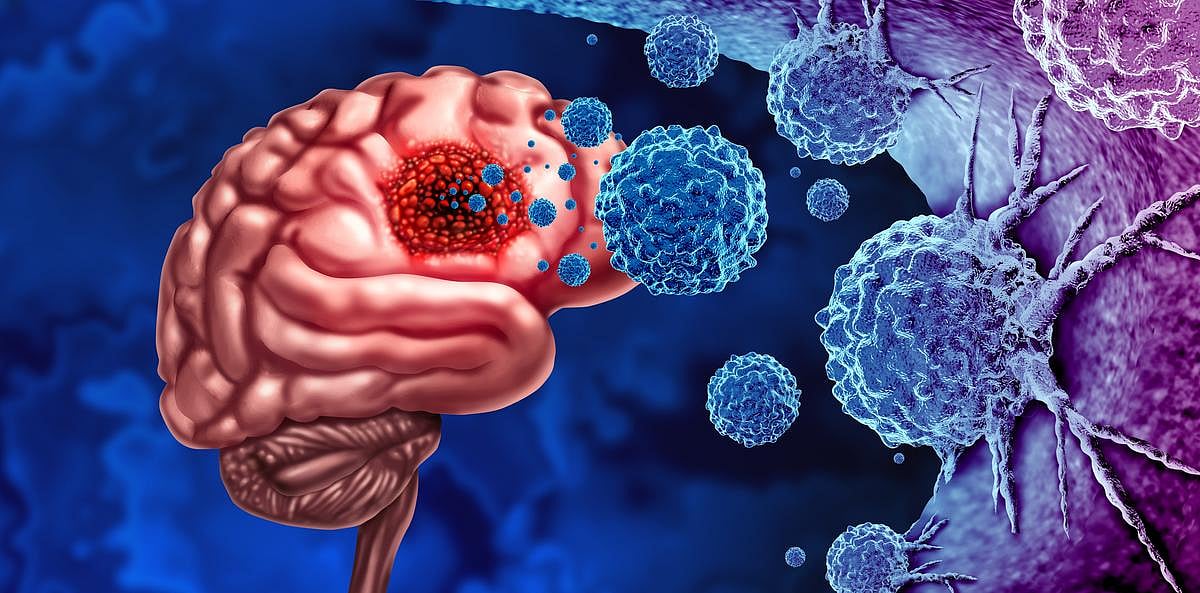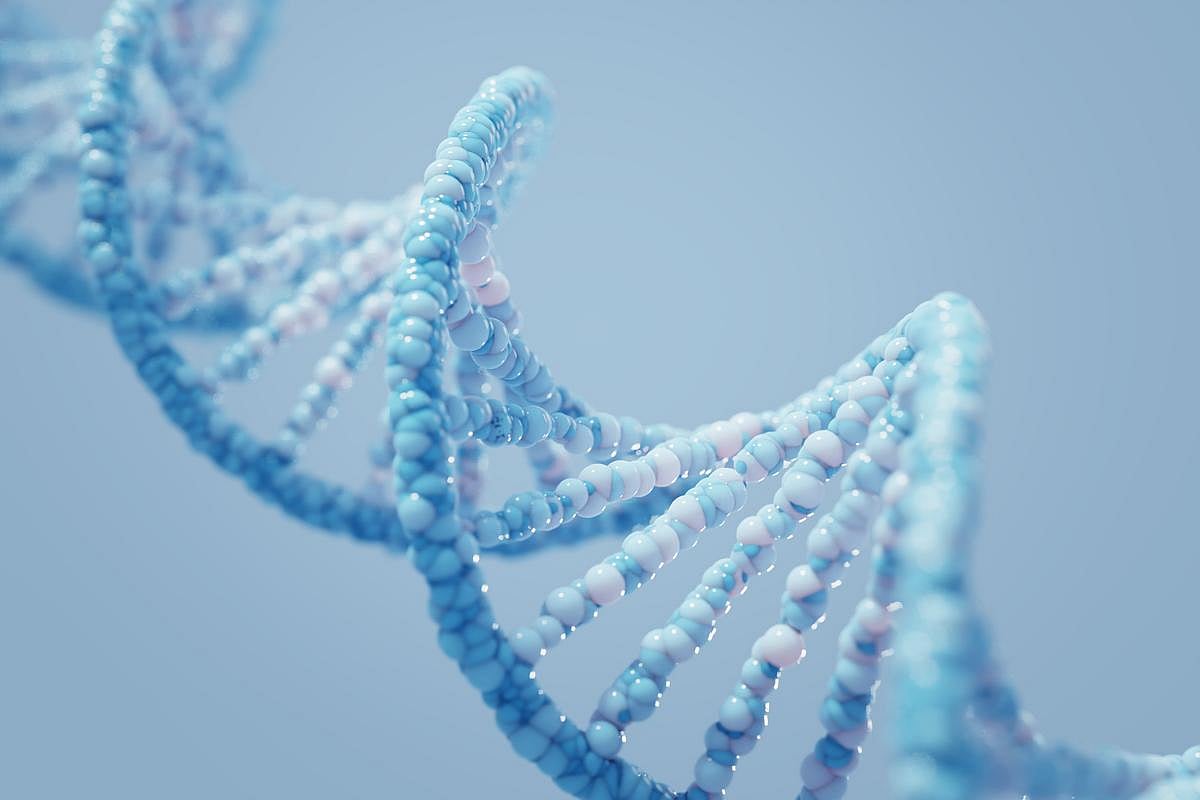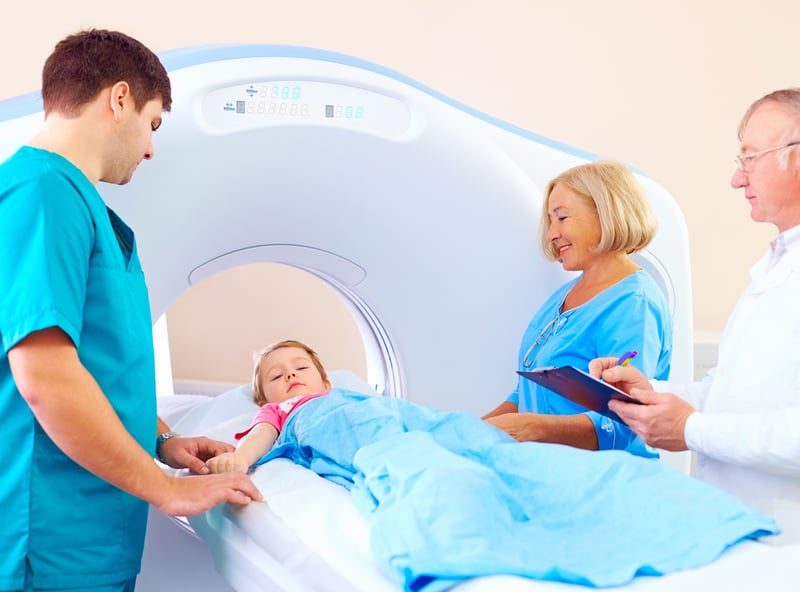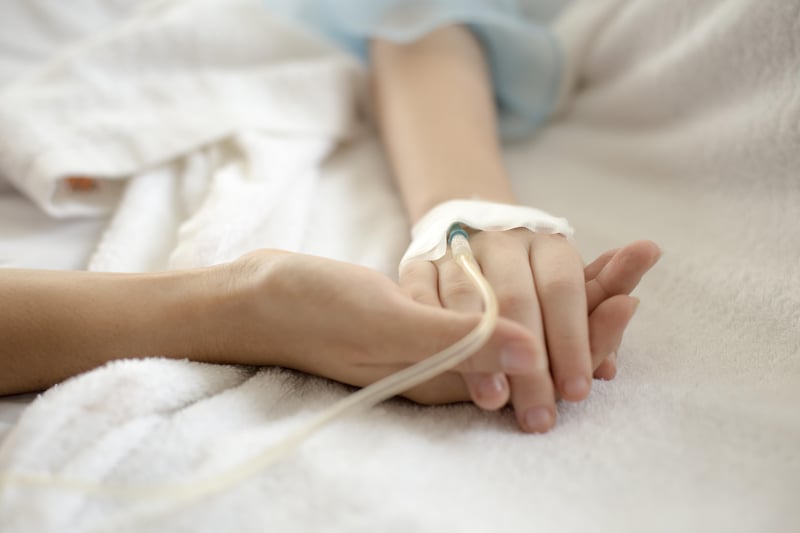Get Healthy!
Results for search "Cancer: Brain".
Health News Results - 39
The brain is thought to be a sterile environment, free from germs.
But unexpected deposits of bacteria have been found inside brain tumors, apparently affecting how the cancers grow and behave, a new study says.
“This work opens a new dimension in our understanding of brain tumor biology,” senior researcher
Firefighters might face a higher risk of brain cancers caused by exposure to chemicals in fire extinguishers, a new small-scale study says.
Veteran firefighters appear to have a higher risk of brain tumors called gliomas, which can be caused by gene mutations linked to flame retardant chemi...
- HealthDay Reporter
- Dennis Thompson
- |
- March 11, 2025
- |
- Full Page
A rapid experimental genetic test can help guide the hands of surgeons as they delicately remove tumors from patients with brain cancer, new research suggests.
The test can measure the level of cancer cells in a tissue sample within 15 minutes, quick enough to give surgeons feedback while the patient’s still in the operating room.
The gene test can detect as few as five cancer...
- HealthDay Reporter
- Dennis Thompson
- |
- February 26, 2025
- |
- Full Page
If you've experienced so-called "senior moments," brain blips or brain freezes, you're not alone.
Many people worry about their future brain health. So many, in fact, that the American Academy of Neurology suggests that everyone consider 12 factors that influence long-term brain health.
“Neurologists are the experts in brain health, with the training and insight n...
- HealthDay Reporter
- Denise Maher
- |
- February 1, 2025
- |
- Full Page
A newly developed AI program can help doctors detect and potentially remove brain cancer that might otherwise be missed during surgery, a new study demonstrates.
The AI, called FastGlioma, calculated how much residual brain cancer remained following surgery with approximately 92% accuracy, researchers reported Nov. 13 in the journal
A recently approved targeted chemotherapy drug can significantly extend the lives of advanced breast cancer patients who have developed tumors in their brains, new clinical trial results show.
On average, patients receiving the drug
In news that should reassure folks glued to their cellphones all day, a new international review finds no link between cellphone use and brain cancer.
Commissioned by the World Health Organization (WHO), the review included 11 experts from 10 countries who sifted through decades of research -- 5,000 studies published between 1994 and 2022 to be exact. The final analysis was just publ...
- HealthDay Reporter
- Robin Foster
- |
- September 4, 2024
- |
- Full Page
Brain tumors in young children are rare, but those who survive them can lag in school for years afterwards, new research shows.
For those families that can afford it, intervening when kids are still in the preschool years might help them perform better academically later on, researchers said.
“We now know that we don't need to wait until patients are struggling with math and r...
- HealthDay Reporter
- Ernie Mundell
- |
- September 3, 2024
- |
- Full Page
Radioactive substances injected into the body could provide a better way of treating glioblastoma, the most malignant form of brain cancer, a new review says.
The cancer treatment, called targeted alpha therapy (TAT), involves injection of radioactive alpha particles attached to special molecules that seek out cancer cells in the body.
Pre-clinical experiments show that TAT increase...
- HealthDay Reporter
- Dennis Thompson
- |
- July 11, 2024
- |
- Full Page
U.S. children with inoperable brain tumors appear to die sooner and find it harder to get care if they live in poorer neighborhoods, a new study finds.
Children from higher-income areas had more than double the average survival time than kids from poorer neighborhoods -- 480 days versus 235 days, depending if a census tract had an average household income higher or lower than $50,000.
...- HealthDay Reporter
- Dennis Thompson
- |
- June 24, 2024
- |
- Full Page
When there's pain, pressure and pounding in your head, you might think the worst: Is it a brain tumor?
Probably not, a Penn State physician assures.
Headache in and of itself is not a common sign of a tumor, because the brain itself doesn't feel pain, said Dr. John Messmer, medical director at Penn State H...
- HealthDay Reporter
- Carole Tanzer Miller
- |
- June 9, 2024
- |
- Full Page
One of the biggest obstacles to treating brain cancer is getting tumor-killing drugs past the blood-brain barrier that normally protects the brain from foreign invaders.
Now, new research shows that ultrasound waves emitted from a device implanted in a cancer patient's skull could be the key to getting chemotherapy and immunotherapy drugs into the brain.
This ultrasound technology a...
- HealthDay Reporter
- Dennis Thompson
- |
- June 6, 2024
- |
- Full Page
A 4,000-year-old skull provides evidence that ancient Egyptians might have tried to treat cancer, a new study claims.
Microscopic observation of the skull revealed 30 or so lesions scattered across its surface that are consistent with cancer, researchers report.
T...
- HealthDay Reporter
- Dennis Thompson
- |
- May 29, 2024
- |
- Full Page
An experimental cancer vaccine can quickly reprogram a person's immune system to attack glioblastoma, the most aggressive and lethal form of brain cancer, a small, preliminary study has found.
The cancer vaccine is based on mRNA technology similar to that used in COVID vaccines, but in this case a patient's own tumor cells are used to create a personalized vaccine, researchers said.
- HealthDay Reporter
- Dennis Thompson
- |
- May 2, 2024
- |
- Full Page
The contraceptive injection Depo-Provera and two drugs used for menopause relief could be linked to a heightened risk for brain tumors in some women, a new study warns.
Depo-Provera (medroxyprogesterone acetate) increased the risk of intracranial meningioma 5.6-fold if used for longer than a year, researchers report in the BMJ<...
- HealthDay Reporter
- Dennis Thompson
- |
- March 28, 2024
- |
- Full Page
Delivering dual-targeted, immune-focused CAR T cancer therapy via a patient's spinal fluid quickly shrank deadly brain tumors, researchers report.
CAR T therapy harnesses the power of the patient's immune system T-cells, which are reprogrammed to seek and destroy a specific protein found on cancer cells.
However, in the new trial -- focused on patients with deadly glioblastomas (...
- HealthDay Reporter
- Ernie Mundell
- |
- March 14, 2024
- |
- Full Page
People who've suffered a moderate to severe traumatic brain injury have a greatly increased risk of brain cancer, a new study of military service members finds.
Brain cancer is relatively uncommon, occurring in fewer than 1% of people in the United States, researchers said.
But service members who had a moderate or severe brain injury were at 90% increased risk for developing malign...
- HealthDay Reporter
- Dennis Thompson
- |
- February 16, 2024
- |
- Full Page
Professional guitarist Christian Nolen took his stage show to an operating room last month, strumming out Deftones tunes for surgeons as they worked to remove a tumor from his brain.
Nolen's performance wasn't just for entertainment -- his guitar playing helped guide the brain surgeons during the delicate operation.
By playing the guitar during an "awake"portion of his two-hour surg...
- HealthDay Reporter
- Dennis Thompson
- |
- January 10, 2024
- |
- Full Page
THURSDAY, Nov. 16, 2023 (Healthday News) -- While childhood cancer is no longer terminal for many, death rates remain higher in Black and Hispanic children, a new government report reveals.
Treatments for these rare cancers have improved drastically in recent decades, and death rates dropped for all children in 2001 -- and kept dropping for another decade.
But over the past 10 years...
- HealthDay Reporter
- Robin Foster
- |
- November 16, 2023
- |
- Full Page
A targeted treatment has had unprecedented success in shrinking a rare brain tumor, according to clinical trial results.
These tumors are papillary craniopharyngiomas (PCPs), and the drug combo is called vemurafenib/cobimetinib.
Each of 15 patients who received one or more cycles of targeted therapy responded to treatment, with an average 91% reduction in tumor size, Mass Gene...
- HealthDay Reporter
- Cara Murez
- |
- July 13, 2023
- |
- Full Page
Scientists have developed an artificial intelligence (AI) tool capable of deciphering a brain tumor's genetic code in real time, during surgery -- an advance they say could speed diagnosis and personalize patients' treatment.
The researchers trained the AI tool to recognize the different genetic features of gliomas, a group of tumors that constitute the most common form of brain cancer am...
- HealthDay Reporter
- Amy Norton
- |
- July 11, 2023
- |
- Full Page
An experimental targeted therapy can dramatically slow the progress of common slow-growing brain cancers, a new clinical trial finds.
The oral drug vorasidenib nearly tripled progression-free survival in patients with grade 2 gliomas compared to placebo, nearly 28 months versus 11 months, according to results presented Sunday at the American Society of Clinical Oncology (ASCO) annual meet...
- HealthDay Reporter
- Dennis Thompson
- |
- June 5, 2023
- |
- Full Page
Brain cancers are notoriously difficult to treat because most chemotherapy drugs can't breach the blood-brain barrier, a microscopic layer of cells that protect the brain from toxins.
But researchers now say they can temporarily open that barrier and get more chemo to brain tumors, using an experimental ultrasound device.
The technology led to a four- to sixfold increase in chemo dr...
- HealthDay Reporter
- Dennis Thompson
- |
- May 3, 2023
- |
- Full Page
A gel applied directly into the brain could offer new hope for patients diagnosed with glioblastoma, the most common malignant brain tumor in adults.
The gel cured 100% of lab mice with glioblastoma when it was applied to the tumor cavity following surgery to remove the cancer, said senior researcher Honggang Cui,...
- HealthDay Reporter
- Dennis Thompson
- |
- April 25, 2023
- |
- Full Page
Getting a single CT scan during childhood doesn't appear to increase a child's risk of a future brain tumor, leukemia or lymphoma, new research finds, but getting four or more scans more than doubles the chances.
CT scans use low-dose radiation, which can damage cells. Past evidence about the risks of cancer from these scans in children 18 and younger was conflicting, researchers said.
- HealthDay Reporter
- Cara Murez
- |
- April 24, 2023
- |
- Full Page
A therapy that arms the immune system to find and destroy tumor cells has shown early promise against a rare and aggressive childhood cancer.
Experts called the findings "promising." But they cautioned that much larger studies are needed to see whether and how the treatment can fit into battling the cancer, called neuroblastoma.
Neuroblastoma begins in immature nerve cells, with tum...
- HealthDay Reporter
- Amy Norton
- |
- April 6, 2023
- |
- Full Page
Researchers studying patients with low-grade, slow-growing brain tumors have found that more aggressive surgery may extend survival.
The trick to treating low-grade gliomas is to remove as much of them as possible soon after diagnosis, researchers at University of California, San Francisco found.
"Our findings p...
- HealthDay Reporter
- Cara Murez
- |
- January 5, 2023
- |
- Full Page
Black patients with head-and-neck cancers have twice the death rates of white patients, and a new study suggests race itself underlies those differences.
"What is unique about our study is it strongly supports the conclusion that Black patients seem to respond to therapy differently than white patients,"said study author
Black patients with brain tumors may be less likely to have surgery recommended to them than white patients are, according to a large U.S. study.
The research, which looked at two national databases, found that on average, Black patients were less likely to have surgery recommended for any of four types of brain tumor. That included three considered benign (non-cancerous) and one that is ...
- HealthDay Reporter
- Amy Norton
- |
- December 9, 2022
- |
- Full Page
Researchers have found a way to safely deliver a steady supply of chemotherapy directly to brain tumors -- in what they hope will be an important advance for patients with currently incurable cancers.
The treatment involves an implantable pump system that supplies a steady drip of chemo straight to the brain tumor. Researchers have tested it in five patients who had recurrent glioblastoma...
- HealthDay Reporter
- Amy Norton
- |
- November 22, 2022
- |
- Full Page
A therapy that uses a virus to kill tumor cells can be safely given to children with a rare, incurable form of brain cancer, an early study has found.
The study -- published June 30 in the New England Journal of Medicine -- involved just 12 children with the disease, called
Dropping a load of pounds through weight-loss surgery can significantly decrease your risk of developing or dying from cancer, according to three new studies.
Obese folks who underwent bariatric surgery were at least two times less likely to develop certain types of cancer and more than three times less likely to die of cancer than heavy people who didn't get the procedure, according to a...
- HealthDay Reporter
- Dennis Thompson
- |
- June 8, 2022
- |
- Full Page
Wildfires, like the one currently raging in New Mexico, are known to cause upticks in breathing issues and heart attacks in their immediate wake for folks who live nearby.
Now, new Canadian research shows that these fires may also increase risk for lung and brain cancer o...
- HealthDay Reporter
- Denise Mann
- |
- May 16, 2022
- |
- Full Page
The early months of the COVID-19 pandemic kept millions of Americans away from routine cancer screenings. Now a new study finds that many U.S. screening programs were still not back to normal by 2021.
The study, of more than 700 cancer facilities nationwide, found that in January 2021 - a year after COVID's emergence in the United States - most still had not recovered their pre-pandemic s...
- HealthDay Reporter
- |
- March 21, 2022
- |
- Full Page
If you were born before 1996, there's a good chance you were exposed to high levels of lead as a kid, and new research suggests this may have harmed your IQ and boosted your chances of lead-related health concerns down the road.
"A significant proportion of Americans alive today had very high lead exposure as children...
- HealthDay Reporter
- |
- March 8, 2022
- |
- Full Page
President Joe Biden announced Wednesday that he is giving a new push to the cancer moonshot initiative that he first led during the Obama administration.
In his announcement, Biden said the program would aim to boost prevention, screening and research with a target of reducing the cancer death rate by 50% over the ne...
- HealthDay Reporter
- Robert Preidt and Robin Foster
- |
- February 3, 2022
- |
- Full Page
Children with the rare cancer neuroblastoma often succumb to the disease despite aggressive treatment. But researchers have found that adding an experimental antibody to that treatment, right off the bat, may improve their outlook.
Of 64 children treated with the antibody in a clinical trial, 74% were still alive and free of a recurrence three years later. That compares with historical ra...
- HealthDay Reporter
- Amy Norton
- |
- December 10, 2021
- |
- Full Page
The cancer drug cisplatin can save children's lives, but often with the side effect of hearing loss. Now a new study shows that young children are especially vulnerable, and the hearing damage may begin early in the course of treatment.
The researchers said the findings highlight the need to screen kids' hearing during each round of cisplatin treatment, to catch problems early.
- HealthDay Reporter
- Amy Norton
- |
- September 28, 2021
- |
- Full Page
Malignant brain tumor rates are declining among U.S. adults, but patients still have a low chance of survival, a new study finds.
The researchers also found that rates of noncancerous tumors are on the rise, likely due to increased awareness and improvements in diagnosis.
"Although the molecular understanding of how brain cancers differ from each other is advancing rapidly, we conti...
- HealthDay Reporter
- Robert Preidt
- |
- August 30, 2021
- |
- Full Page








































